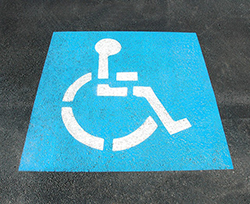 In the event a disability that causes an inability to work occurs, Disability insurance works to replace a portion of your absent income. Although it should be obvious why Disability insurance is critical protection, many workers assume that they don’t need private Disability insurance since Social Security disability benefits are available. What many fail to understand is that eligibility for Social Security disability benefits hinges on the severity of the disability.
In the event a disability that causes an inability to work occurs, Disability insurance works to replace a portion of your absent income. Although it should be obvious why Disability insurance is critical protection, many workers assume that they don’t need private Disability insurance since Social Security disability benefits are available. What many fail to understand is that eligibility for Social Security disability benefits hinges on the severity of the disability.
If the injury or illness doesn’t cause severe disability, the worker will not be eligible. Even if severely disabled, Social Security benefits will not begin for six-months and rarely are sufficient to fully cover living expenses. Disabilities that continue for an extended period of time can easily deplete savings before a return to work is possible. For these reasons alone, Disability insurance is the most reasonable method of financing a long-term disability.
The maximum coverage through private long-term Disability insurance is 45% to 70% of your salary, depending on how much you earn per year. The cost of the premium is largely based on how risky your job is; for example, physical labor is considered more risky than a professional employment. Age, overall coverage, and your health history are also factors that will affect policy pricing. The income provided by the policy while you’re disabled isn’t taxed if the policy is purchased on your own versus through your employer.
You might choose to supplement an employer disability plan with your own Disability policy. If so, you will want to know the amount of coverage offered, how long the benefit period will last, and what the waiting period will be so that you can coordinate the coverage appropriately.
There are six key provisions that you’ll want to look for when purchasing a Disability insurance policy:
What is considered a disability by the policy?
Some policies might consider a disability as an inability to complete the main duties associated with your occupation. Other policies might consider a disability as an inability to perform any duties from any job. So, be sure to understand the disability provision as it relates to your specific occupation.
Does the policy have a non-cancellation clause?
A policy with a non-cancellation clause means that the provider can’t increase your premiums or cancel the policy until you’re 65-years-old. The only exception is if you don’t pay your premiums on time.
Does the policy include residual disability payments?
These are payments that you’ll receive if you’re partially disabled and must take a lesser paying job. The benefits will be proportionate to the wage difference between your previous job and new job.
What is the benefit waiting period for the policy?
Generally, the longer the waiting period, the more affordable the policy will be. For those that have employer disability benefits, you’ll often come out better to opt for a personal policy with a longer waiting period to reduce the cost.
How long will I receive benefits from the policy?
The majority of private policies provide benefits until you’re 65-years-old.
Will I remain insurable?
You’ll want to make sure that the policy allows you to purchase coverage in the future without needing to be medically insurable.
Sadly, no one knows when an accident or illness will strike and cause a long-term disability. However, we do know that, if not prepared, the result is all too often financial devastation.





